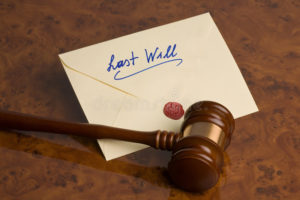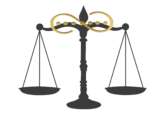 Last Will & Testament: Are you of a sound mind?
Last Will & Testament: Are you of a sound mind?
In Part I we highlighted the key players in a will and the formalities required to make a valid will under Jamaican law. Last week’s article broke down a judgment from our local court in which a valid will was successfully challenged. The valid will in that case was successfully challenged on the basis that a husband had not made reasonable provision for his wife.
This week, we will explore another judgment form our local court in which a document put forward as a will was challenged on the basis that it was not a valid will. The document was challenged by relying on an allegation of forgery of the testator’s signature.
Is the testator of a sound mind?
A key consideration in preparing, and challenging a will is testamentary capacity. In simple terms, this means the testator must be of a sound mind, memory and understanding, at the time of preparing the will and signing the will.
The Challenge
The Claimant who challenged the will insisted that the testator was not of a sound mind, memory and understanding due to the testator having been ill from 2005. The alleged lack of testamentary capacity formed the basis for the accusation of forgery.
If you are putting forward a will as being valid, you are responsible for proving that the testator was of a sound mind, memory and understanding when making the will. This burden arises when the testamentary capacity is challenged, as in this case.
Old will vs New will
You might recall from Part I where I mentioned that the making of a new valid will generally revokes the old will.
This case involves two wills. The Claimant not only alleged that the document dated April 09, 2009 being put forward was a forgery but that there was another document dated September 07, 2006. According to the Claimant that earlier document was the only valid will of the deceased testator.
The doctor
The Claimant based his suspicion of forgery on his assessment that the testator would have been too senile and weak to sign a will on April 9, 2009. Bear in mind that the testator passed on April 20, 2009. He spoke of the testator being so frail that his hands shook violently. To further support his claim, he expressed that the testator did not leave the house between March and April 2009. To access the office of the lawyer whose service was used to prepare the April 2009 will, the testator needed to use stairs. For the Claimant, the testator would not have been able to climb the stairs.
What did the doctor say? The doctor last saw the testator one month before the 2nd will was signed. While there was no formal mental status examination, the doctor asserted that there was no evidence to overtly suggest that his intellect was insufficient for decision-making.
The lawyer
Her evidence was that the testator approached her to make a will, and she found him to be healthy, strong and in his right mind. In fact, she says he was able to identify his properties by address, and description. He also stated the full names of all his beneficiaries. This was the same lawyer who prepared the 1st will.
Who do you believe so far?
The helper & the Witnesses
Her evidence was that up to two days before the testator passed, he went to Spanish Town to conduct his affairs. She added that he had sensible conversations until he passed.
Both witnesses to the 2nd will gave evidence. They stated that they signed the 2nd will in the presence of the testator and each other. The testator signed in their presence.
The Claimant
The Claimant is the testator’s son. The Defendants who are the Executors are the testator’s daughters. The Claimant alleged that he was responsible for the care of his father and lived at the same premises as his father since 2002. His sisters denied those allegations and insisted he moved to the property in 2006. At court the Claimant admitted that his father had helpers around the clock. The sisters also gave evidence that he was very disrespectful to his father, and stopped speaking to him a year before his passing.
The Claimant relied on two witnesses one of whom is his brother who appeared to regurgitate the Claimant’s evidence. The other witness gave inconsistent evidence.
Who forged the will?
The Claimant did not say who he believed forged the will but relied on a handwriting expert. The examination was done using a photocopy of the wills and not the original. The expert concluded that the signatures of the testator on both wills were inconsistent. At the trial the expert stated he was not aware that a person’s handwriting changed during their lifetime. The expert was also unaware of the age and other details concerning the testator.
What did the court decide?
The court rejected the evidence of the handwriting expert, and did not believe a complete examination could be done using photocopies. Having examined the signatures, the court noted that there were differences but overall, the signatures were very similar. The court accounted for those differences based on the age at signing, and illness.
The doctor’s evidence was found to be reliable, and the judge found the sisters’ evidence more credible.
Ultimately, the court concluded that the testator did sign the second will, which met all the legal formalities to make it a valid will. This meant the 2nd will effectively revoked the 1st will.
While the court found that testamentary capacity existed in this case, it is important to bear in mind that testamentary capacity may look different in another case.
Until next time, stay safe.
Disclaimer by the author: Nothing in this article is to be taken as legal advice. You should consult an attorney regarding your specific case. All liability with respect to actions taken or not taken based on the contents of this article are hereby expressly disclaimed.
